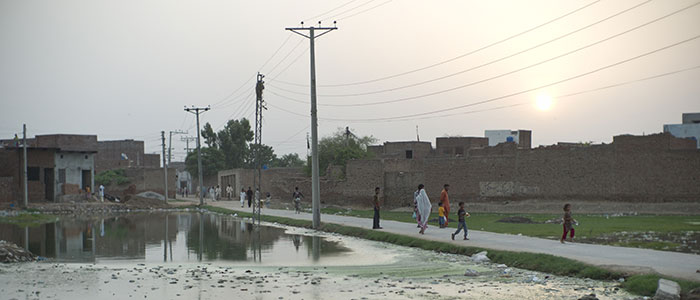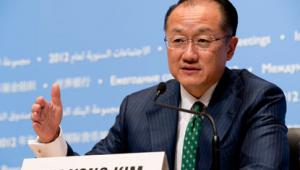Web_PakistanSlum_shutterstock_146884730.jpg

Slum in Lahore, Pakistan
During a two-day visit to the South Asian country Kim also urged leaders to strengthen the role of the private sector for job creation, accelerate energy reforms, make improvements to health and education, and ensure that anti-poverty measures reach the poorest people effectively.
Kim said: “I have been impressed over the last two days with the achievements of the people of Pakistan and would encourage the country to be more ambitious with reforming its economy so that more people are lifted out of poverty more quickly and prosperity is more widely shared.”
In a speech to key Pakistani ministers and officials, Jan Walliser, World Bank vice president for equitable growth, finance and institutions, outlined some of the measures that could be taken to accelerate growth in the country.
Pakistan will need to invest more, he said. The country currently invests only 15% of its gross domestic product – one of the lowest investment rates in the world and one half of the average in South Asia.
He welcomed government efforts to address the constraints that inhibit investment, such as increasing revenue collection, improving the investment climate, reforming the energy sector to address shortages and improving access to finance.
Achieving accelerated growth would also help create more and better jobs for Pakistan’s expanding population, he added.
However, he noted that Pakistan also needs to take measures to build external and fiscal buffers and manage external risks.
These include fiscal consolidation to make room for countercyclical policy if necessary, efforts to improve competitiveness and increase foreign direct investment and exports and diversifying export markets.
While lower commodity prices have benefited Pakistan as an importer, low oil prices threaten the remittances Pakistan’s economy relies on to finance its trade deficit.
Pakistan is one of the largest destinations for remittances in the world, and more than 60% of these come from Gulf countries whose budgets are tied to oil exports.
The slowdown in China has also affected Pakistan’s exports. Almost 10% of the country’s exports go to China and the consequences of economic rebalancing in the country are already taking their toll in Pakistan – exports have already shrunk by 9.3% in the first half of the 2016 financial year.











